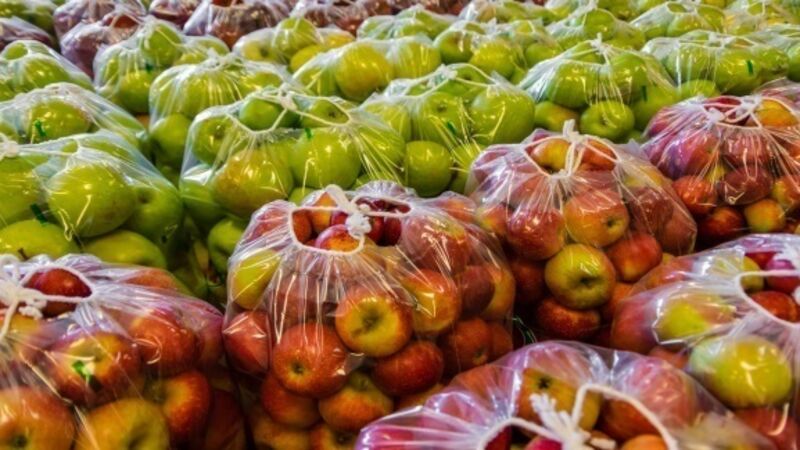Forget money, the Earth’s budget has just gone bust

From now until the end of the year, everything we use — water, soil, clean air — is unsustainable in the long-term. And a little like talk of Christmas, that day comes earlier every year.
As recently as 1961, the world still produced a surplus. The deficit began in the 1970s when the world’s population had exhausted all of its resources by early December. Since then, that date has been creeping forward year on year and, at the current rate, we will need two planet Earths by 2030 to deal with our consumption rates and growing population.
But that’s a general figure. Australia, for instance, already needs 5.2 Earths to keep it going; America needs five while the UK, France and Germany can manage with just three.
Here in Ireland, we need a little less: 2.82 Earths would be enough to keep us in the consumption style to which we’ve become accustomed.
What all that means in real terms is this: From last Wednesday, we harvested the food, fished the fish, felled the trees, emitted the carbon that should last us until the end of this year.
We’ve been paying a lot of attention to our financial shortfall, but we can’t afford to ignore the environmental one any longer.
The Global Footprint Network, an international think tank designed to help us live within our ecological limits, says the solution needs to focus on producing more sustainable food, building greener cities, reducing the population of those cities and decarbonising the economy.
By simply cutting food waste, Earth Overshoot Day would be pushed back into the middle of August, gaining us eleven extra days.
It would also put an extra €1,000 in the average Irish pocket annually, according to the Stop Food Waste programme.
You can’t overstate the benefits of buying locally either. Why, then, is it still so hard to find Irish produce in Irish supermarkets? The potato, for instance, is something of a national symbol so why are we still importing the familiar tuber?
Here’s just one unsettling statistic: Almost all of the potatoes used in frozen chips by the Irish catering industry are imported.
It is also almost impossible to buy an apple that hasn’t gone on global tour? It might be a little early for Irish apples, but it’s worth keeping a close eye on produce to see if the Irish harvest is reflected on our supermarket shelves.
Indeed, the Irish apple has a much longer history than the Irish spud, a relative newcomer. Under the ancient Brehon laws, stiff penalties were imposed on anyone who not only cut down an apple tree but removed a single branch.
As for the green bean, that is certainly not a thing so modern and exotic that we need to journey 11,000km to procure a handful. The only green beans on sale in my local supermarket are ones that have come all the way from Argentina.
If we wanted to put on an international fruit and veg variety show, we could not do much better.
The array of imported produce brings to mind the story told by Michael Kelly when he was asked to explain what prompted him to establish the inspiring — and thriving — Grow It Yourself (GIY) movement.
While shopping in the supermarket, he saw garlic on sale that was labelled “fresh garlic from China”.
It wasn’t so much the idea that the garlic had travelled all the way from China, though that in itself is enough to make you think, but the notion that it would be still be fresh which inspired Kelly to try to grow his own.
At least he acted on his outrage. How many of us just shrug at the accumulated air miles, or even notice them at all? I’m one to talk. My herb patch is a forgotten wasteland in which only the mint has been hardy enough to survive.
The bicycle bought on the bike to work scheme rarely gets out — the chance of rain is too high; the risk of thieves too real.
But here’s another stat that will force a rethink — if we reduced driving by 50% and opted for walking, cycling or public transport instead, Earth Overshoot Day would move back by 10 days.
We’d also be healthier and our cities might breathe easier. That brings us to the need to reduce the numbers of people living in those cities, a point that was made rather inappropriately to William and Kate, the duke and duchess of Cambridge, this week when they were urged not to have a third child by Having Kids, a US-based organisation that promotes sustainable family planning.
After Kate Middleton joked about having a third child, the group wrote an open letter asking the royals to think about the environmental impact Number Three would have on climate change, flooding and wildlife.
Awkward and over-personal? Absolutely, yet we’re reminded again and again of the need to reduce the population. If every other family had one child fewer, we’d gain 30 extra days of natural resources a year, so the projections go.
It will be interesting to see how that issue is addressed without making it sound like China’s former one-child policy.
However, by far the best thing we can do for our planet is to decarbonise the economy.
Cutting our usage in half would give us three whole months back on the ecological clock.
In a week when new research, published in Nature Climate Change, predicted that the Paris Accord on Climate had just a 5% chance of reducing global warning, it’s surely time to change tack. There’s no point obsessing over our digital footprint when it’s our carbon footprint that is doing all the damage.















